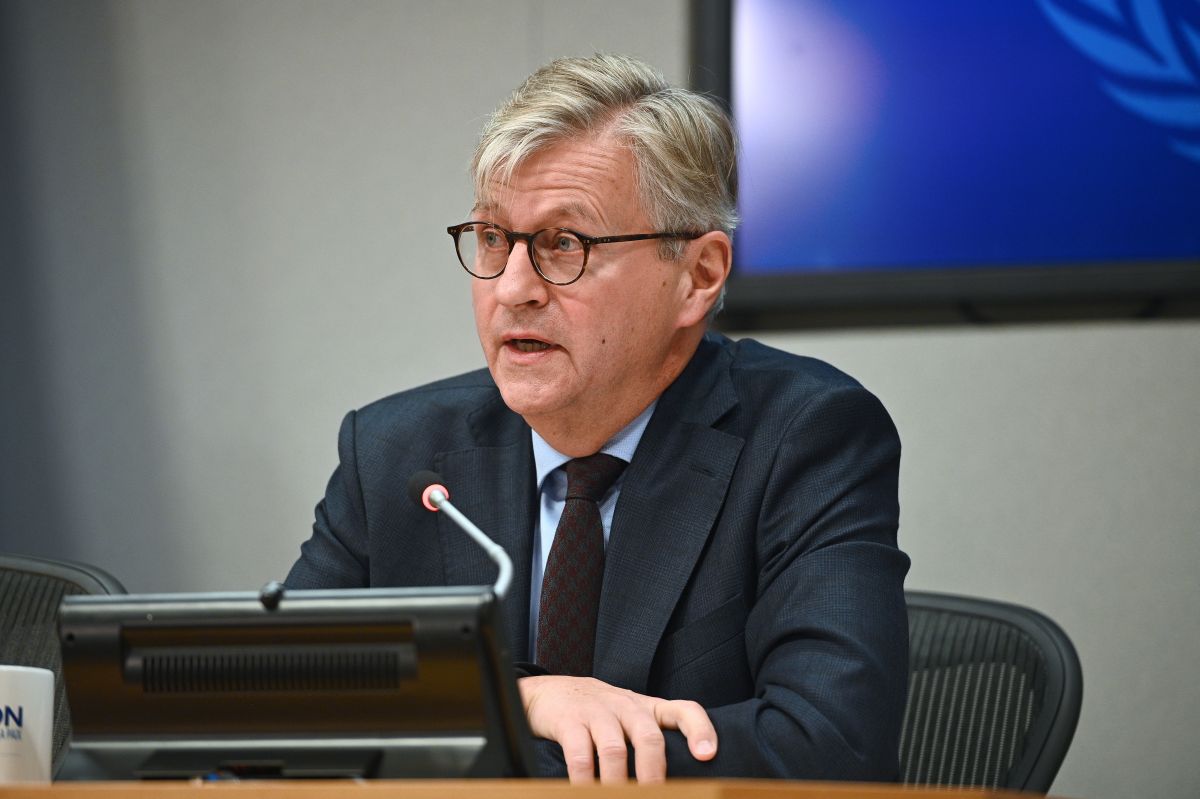By Stefano Vaccara
NEW YORK (UNITED STATES) (ITALPRESS) – Press conference today at the Glass Palace with Jean Pierre Lacroix, the head of the UN Department of World Peacekeeping Operations and who this time had to answer journalists’ questions about UNIFIL, the “peace-keeping” mission with more than ten thousand blue helmets (including more than a thousand Italians) that remained in South Lebanon despite the fact that Israel and Hezbollah are now in open conflict. When asked why the blue helmets, who are supposed to “keep the peace,” had remained in a territory where there is no peace but now only war and destruction. Lacroix responded by saying that the UNIFIL mission, despite the difficult situation, continues because it provides humanitarian aid to the remaining civilians (according to Lebanese authorities already one million Lebanese have reportedly left southern Lebanon, ed.).
Secretary General Antonio Guterres, during Wednesday’s emergency meeting of the Security Council, had said that Israel had asked him to move UN blue helmets from some areas of the Blue Line, reiterating that UNIFIL remains where it is and that proudly “the UN flag continues to fly.” (In the same hours Guterres was being branded “persona non grata” by the Israeli government, ed.). But if UN bases were hit while fighting between the IDF and Hezbollah, who would be most responsible for any casualties, the Israelis who warned Guterres, or the latter who refused to remove the blue helmets. On Antonio Tajani’s statements today at the Senate question time, in which the Foreign Minister said that “The diplomatic solution also revolves around strengthening the operational capacity of Unifil – which must be put in a position to fully carry out its mandate. (…) But it’s not up to us to make that decision, it’s up to the United Nations,” Lacroix told Italpress, “It’s not up to me to comment on or interpret what the Italian foreign minister said,” adding, “The political will to implement Resolution 1701 is fundamental. Resolution 1701 is and continues to be a framework of resolution accepted by both sides. They are all committed to how to move from where we are, which is a terrible situation of risk, to certifying a return to the negotiating table and finding a path toward the implementation of 1701.” “I keep saying that it is not up to UNIFIL to implement 1701, but UNIFIL has to support the implementation of 1701 by the parties to the conflict. Now, if we get to that stage, we will have to think with the members of the Security Council, with Unifil, with all the stakeholders, how it can be adapted to better play that role. And of course, looking at what I call the positive scenario. But right now I think the priority is really to intensify diplomatic appeals and diplomatic efforts to make sure that the diplomatic route is prioritized over escalation,” Lacroix adds.
So on a possible call for help to the blue helmets from Lebanese civilians caught between the two fires in the fighting between the Israelis and Hezbollah, Lacroix has no doubts “I think, in fact I’m sure they would intervene.” “I think the peacekeepers would do everything in their power to protect the population. I won’t go into micromanaging, exactly. It’s up to them to assess what they can do.” Asked who ultimately decides on what the blue helmets, in an emergency situation, can and cannot do, French UN official Lacroix replied, “We have a very clear chain of command. The Force Commander is responsible for everything Unifil does. And then we have the headquarters, the Department for Peacekeeping Operations (i.e. Lacroix, ed.) and most importantly his boss,” he concluded by pointing to Stephane Dujarric, the UN Secretary General’s spokesman. In short in the end, the final word on who will give approval in the coming hours on what UNIFIL will or will not do to protect its blue helmets and/or Lebanese civilians will be up to Antonio Guterres.
photo: IPA Agency
(ITALPRESS).

